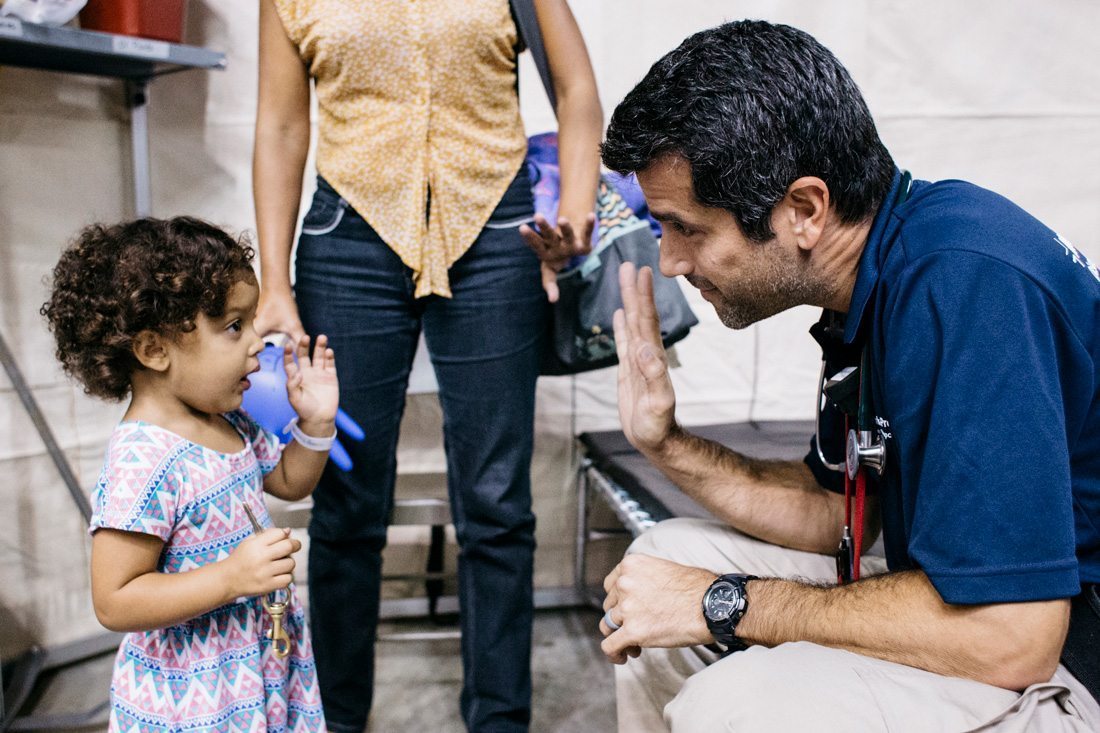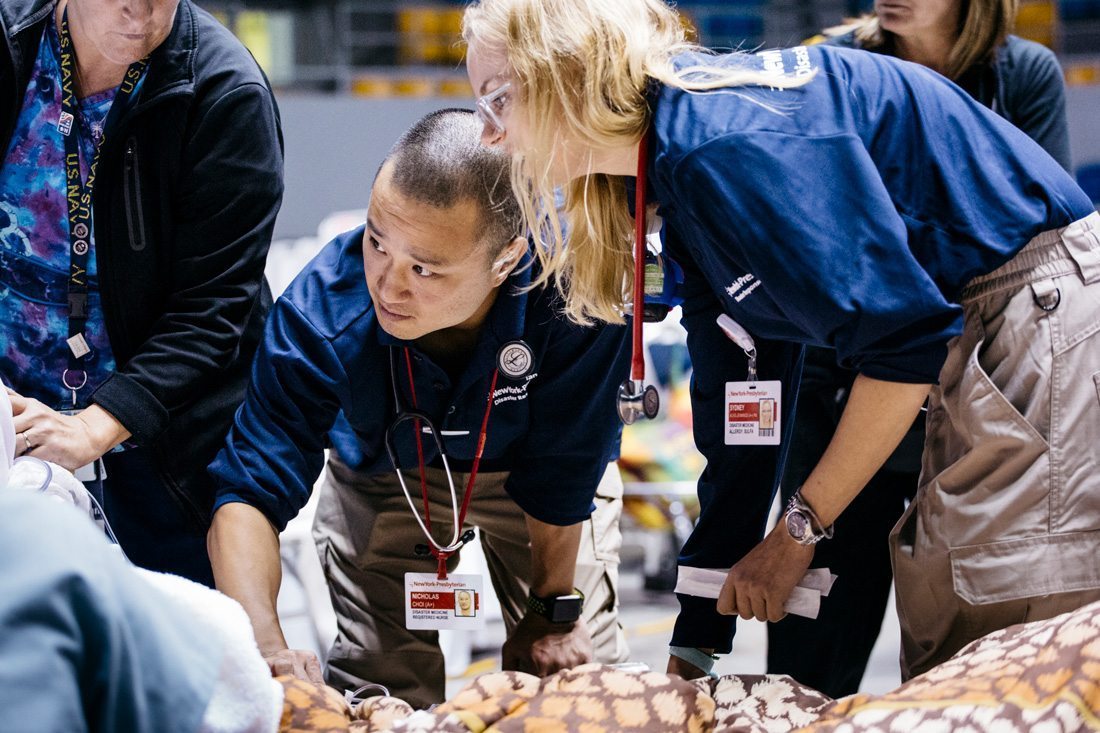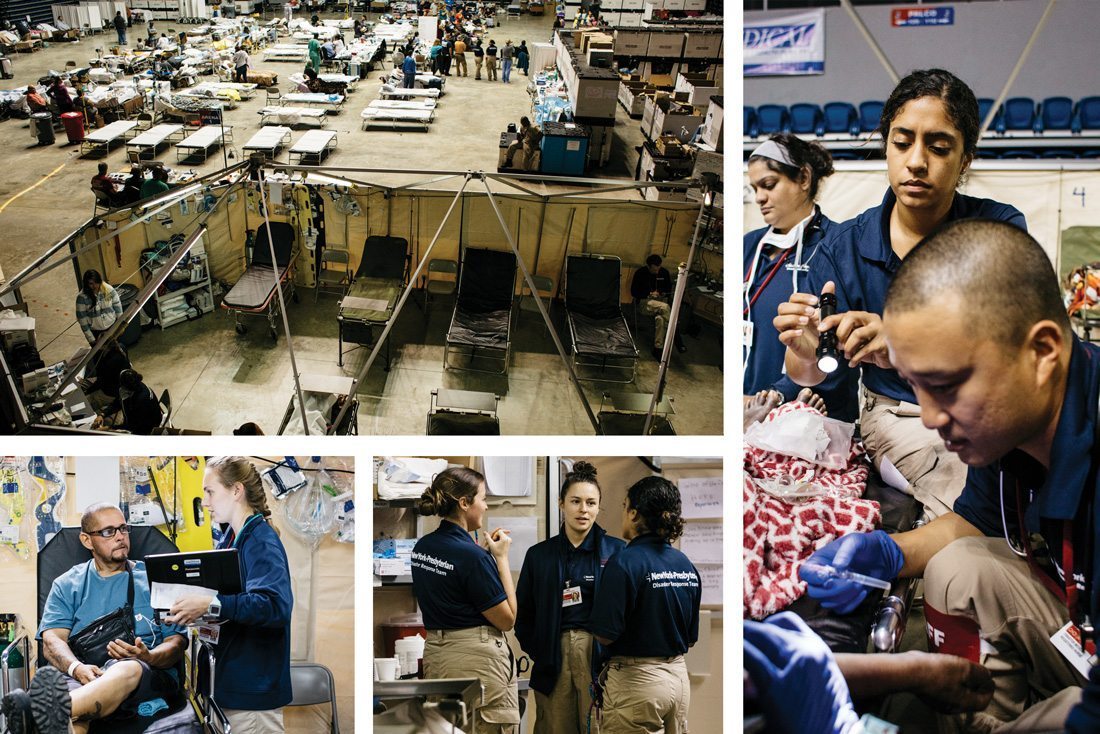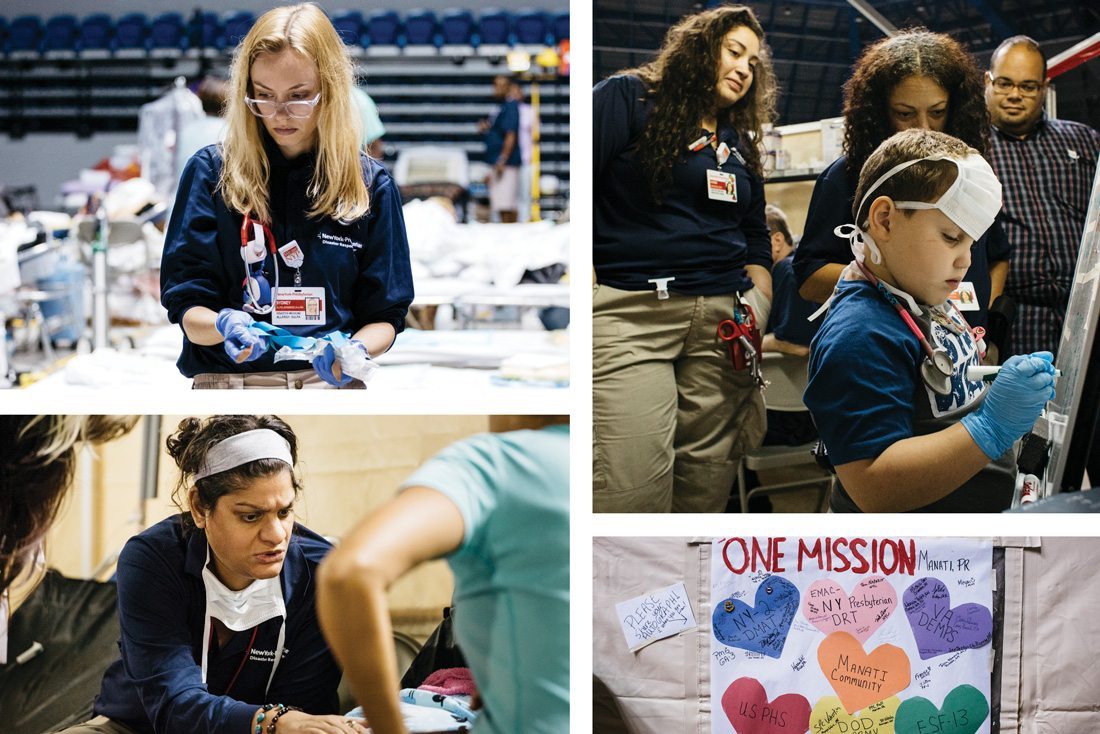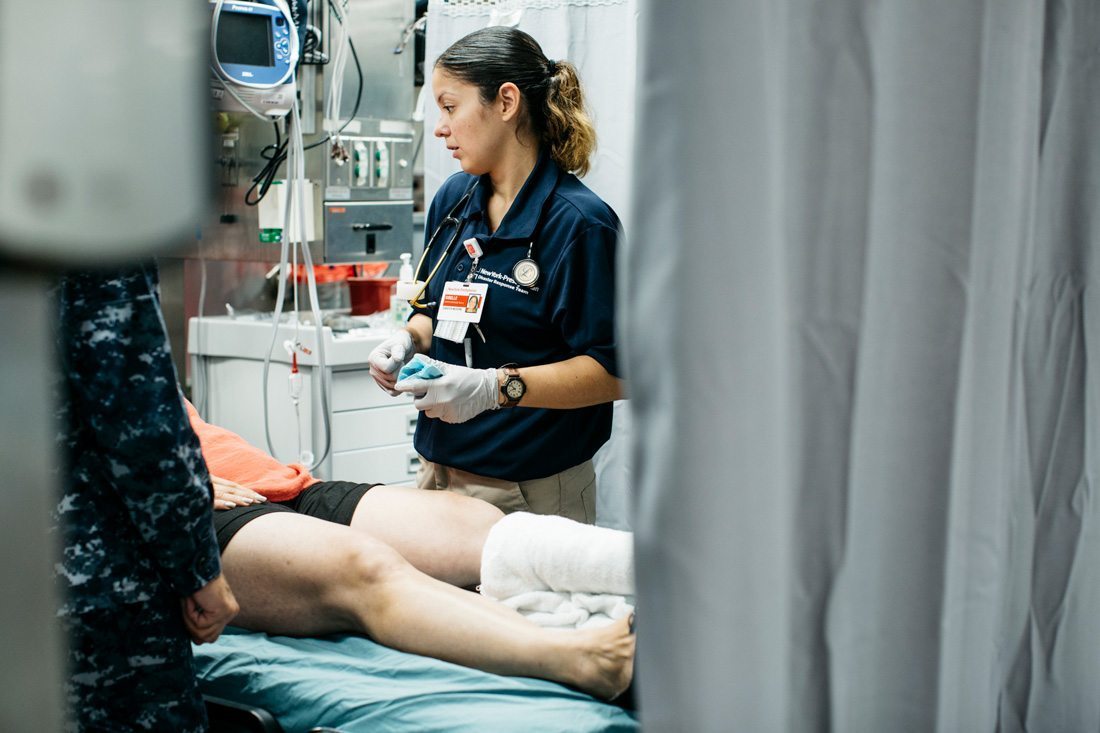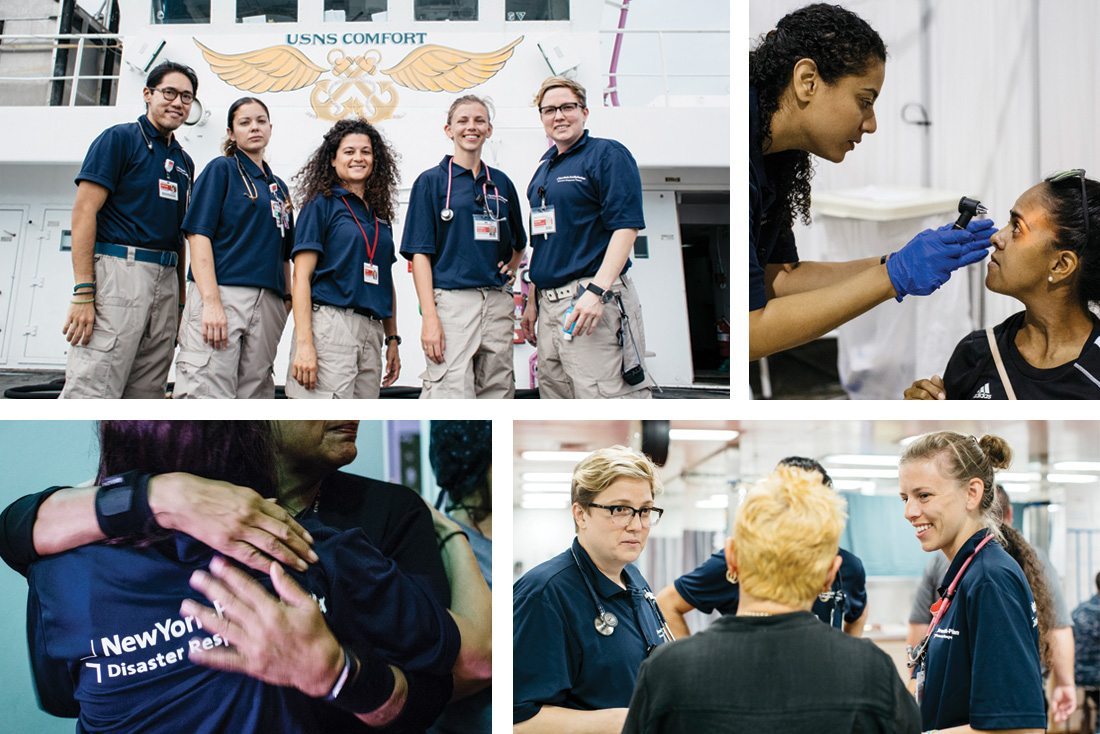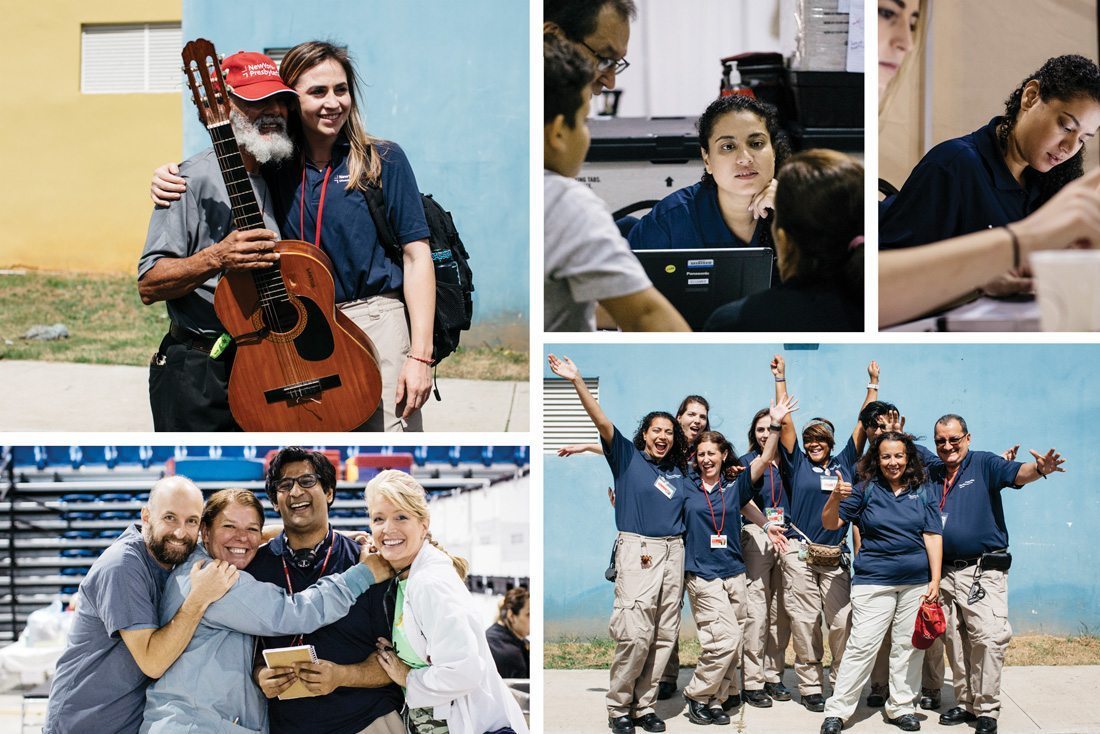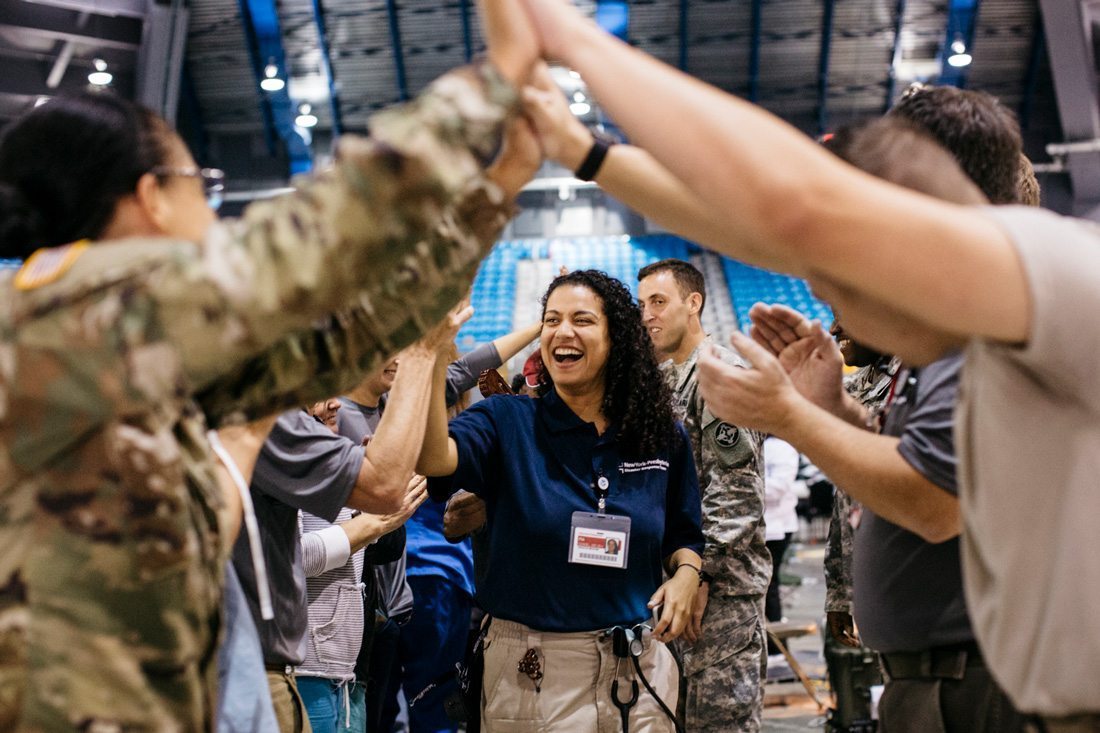Second Disaster Response Team Returns Home from Puerto Rico
Long hours in challenging conditions were eclipsed by the rewards of caring for patients who are still in need of help after Hurricane Maria.
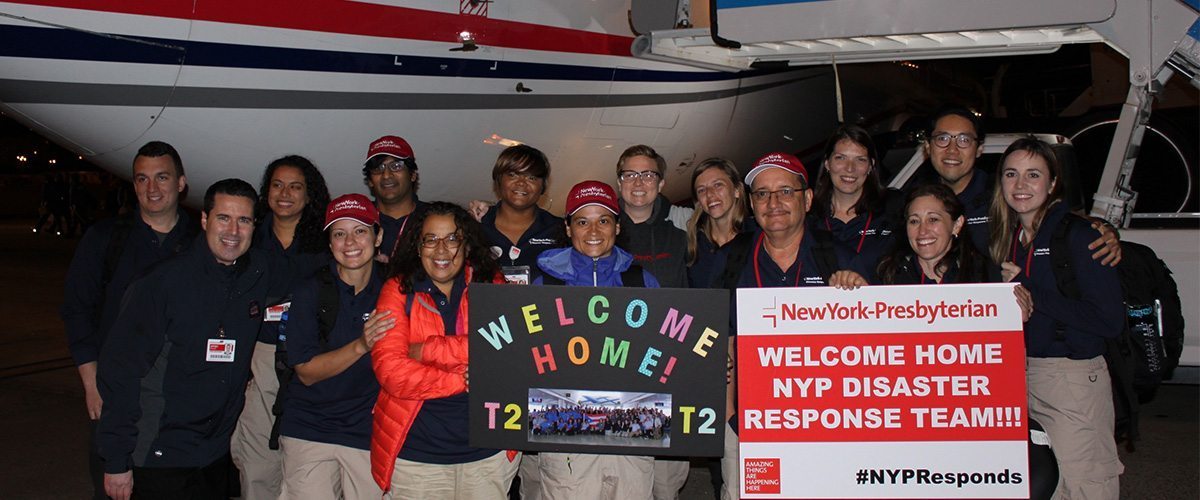
On November 8, NewYork-Presbyterian’s second disaster response team — Team 2 — returned home safely from its two-week aid mission in Puerto Rico.
When the team members were deployed last month, they knew they would be putting in long hours caring for hundreds of patients each day in what would be challenging conditions.
What they left with were tight bonds and a soul-stirring experience that will stay with them for a lifetime.
As the 14 doctors, nurses, physician assistants, and emergency personnel, along with medical crews from other hospitals in New York State, exited the chartered plane onto the tarmac at Newark Liberty International Airport, they gathered for a team photo and began singing, “We are Manatí, mighty, mighty Manatí,” referring to the town where the team was based for much of the deployment. Several nurses wiped tears from their eyes as they hugged goodbye.
Dr. Pia Daniel, an emergency department physician at NewYork-Presbyterian/Columbia University Irving Medical Center and the Team 2 leader, says the departure from Manatí was sentimental, recalling the songs and tears they shared with patients.
“Leaving was a beautiful, beautiful moment where everybody recognized how far we’d come [in such a short time]. We were all family,” she says of the team that put in 12- to 15-hour shifts daily. “I think every single person here would go back in a second.”
Touching Countless Lives
The hospital’s second disaster response team took the reins from Team 1 on October 25, serving at a federal medical shelter in Manatí, about 30 miles west of San Juan; aboard the USNS Comfort, a hospital ship docked in San Juan; and in a massive tent outside Puerto Rico’s largest hospital. Since the first deployment October 12, the teams have treated more than 5,400 patients, says Jeffrey Bokser, vice president, Safety, Security & Emergency Services at NewYork-Presbyterian.
“Many of the most complex cases were referred to our NYP team,” Bokser says. “Over 5,400 patients in Puerto Rico are better off because of the dedication, professionalism, and skills of the NewYork-Presbyterian Disaster Teams.”
To assist the team and expand access to specialized care, NewYork-Presbyterian launched a peer-to-peer telehealth service, which connected the medical staff at the federal medical shelter in Manatí with staffers at Weill Cornell Medicine and NewYork-Presbyterian/Columbia. A number of specialists were available to assist the team in Manatí through NYP OnDemand, NewYork-Presbyterian’s telemedicine program.
“Telehealth was amazing,” says Dr. Daniel. “There are certain things where we really did need a specialist. We were able to get endocrinology, a pediatrician, ENT, and psychiatry to help us deal with patients that we really wanted an expert to give them the best medical care we could.”
The team provided high-quality care despite limited resources, including the lack of X-ray machines and a shortage of supplies like antibiotics and insulin syringes. Concerned that illness would spread from patients and families who arrived with coughs and fevers, the team required flu vaccines to be provided.
“I decided that we needed to vaccinate as many people as possible,” says Dr. Arnab Ghosh, an internal medicine physician at NewYork-Presbyterian/Weill Cornell Medical Center and an assistant professor of clinical medicine at Weill Cornell Medicine. “We went from bed to bed and vaccinated as many people as we could.”
For Erwin Perez, a nurse in the emergency department at NewYork-Presbyterian Brooklyn Methodist Hospital, and the first member of his family to be born outside of Puerto Rico, the trip was bittersweet.
“It was very hard for me to see what a lush, beautiful, incredible island was turned into. Being a Puerto Rican, it hurt,” he says. “But it was like a dream come true being able to go over there and help.”
Rebekah Wiley, a clinical nurse manager in the emergency department at NewYork-Presbyterian/Columbia, had a similar reaction.
“It’s good to be home,” she says, “but I’m gonna miss the work we were doing down there.”

